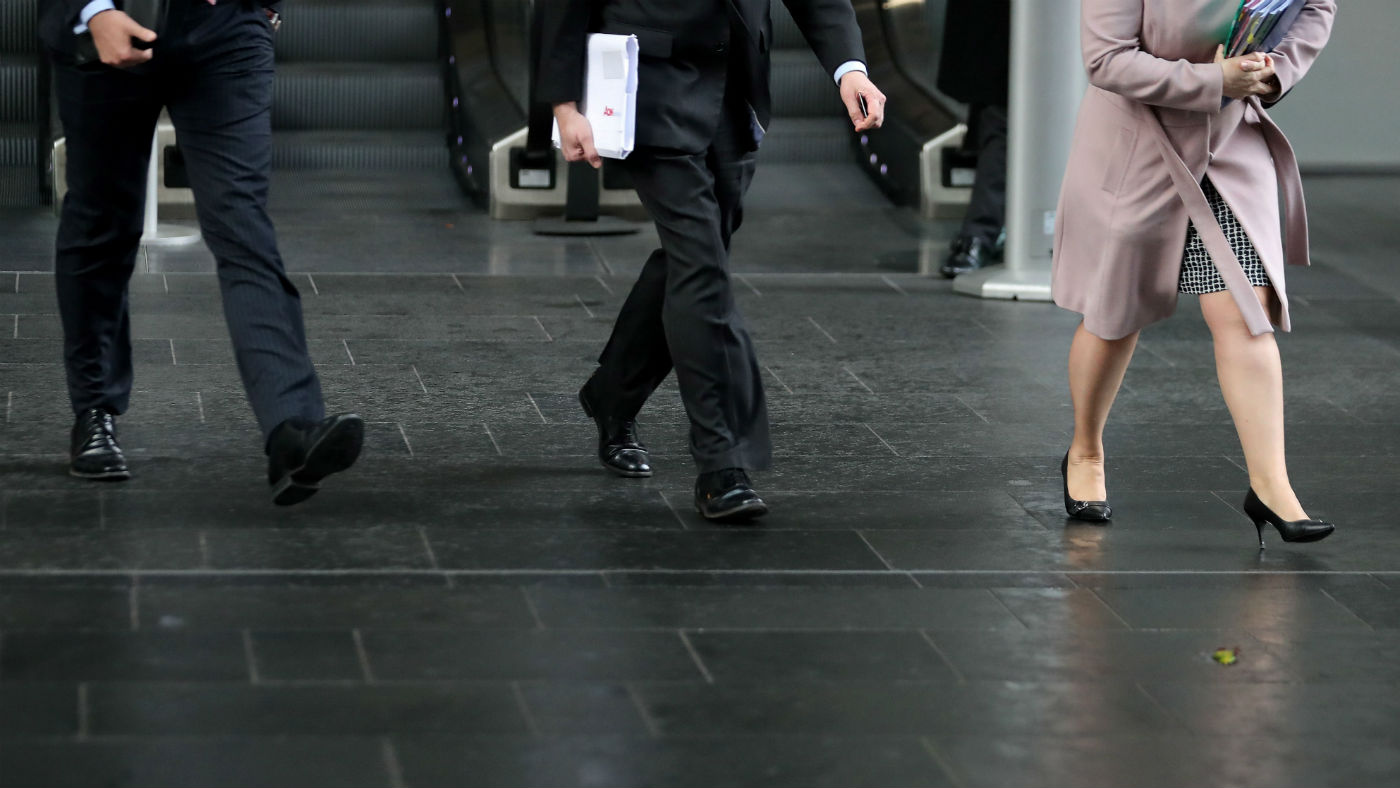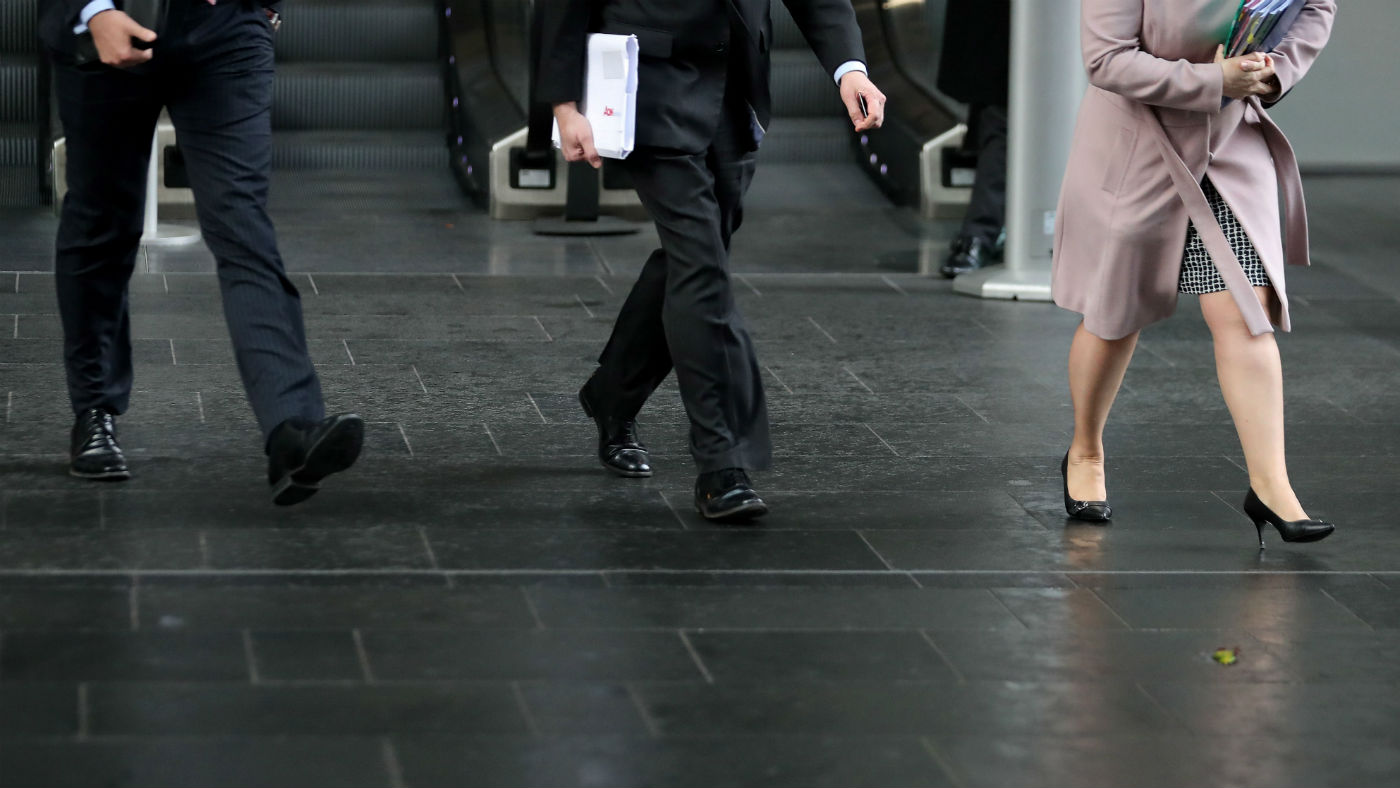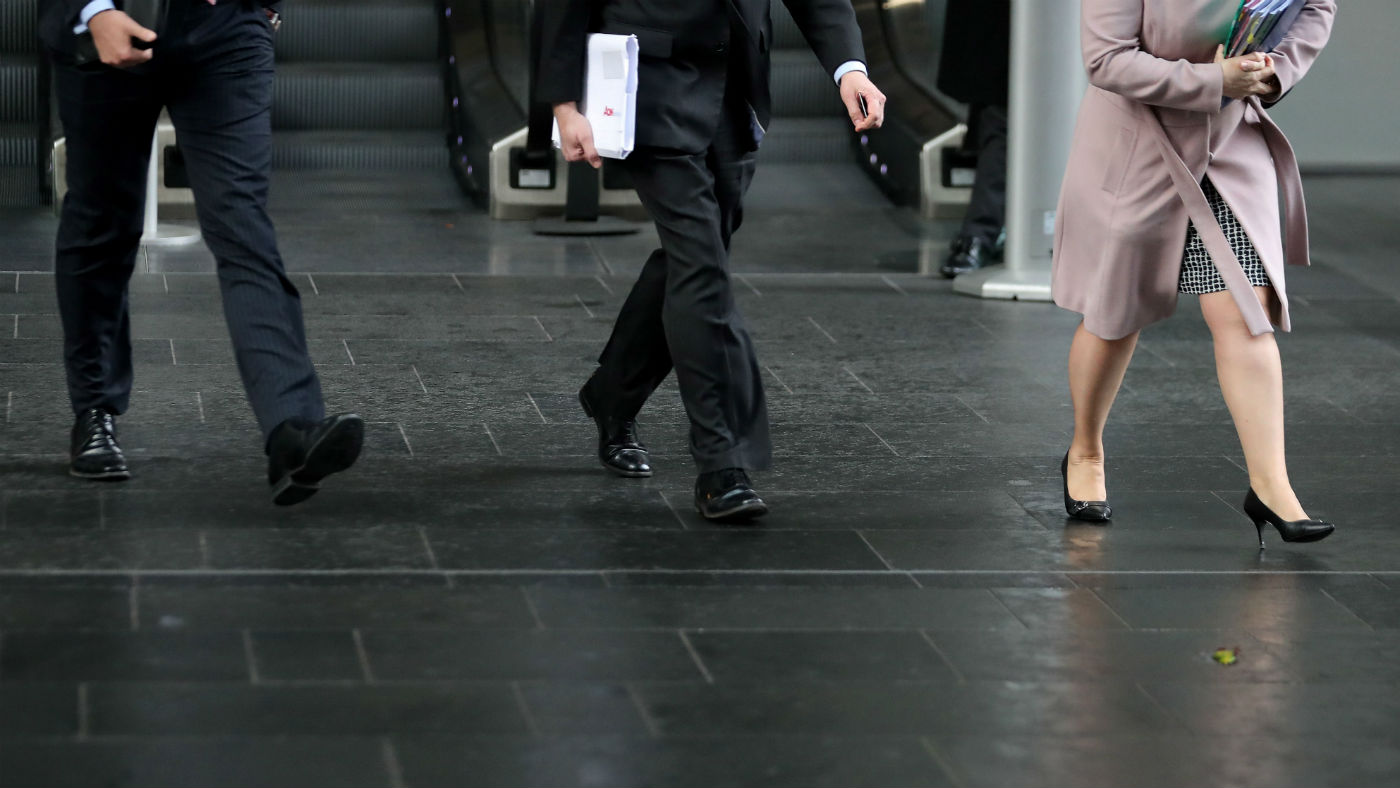BBC pay list: Should all salaries be made public?
A tool to challenge inequality or just plain nosey? Here are the pros and cons of publicising pay

A free daily email with the biggest news stories of the day – and the best features from TheWeek.com
You are now subscribed
Your newsletter sign-up was successful
After the salaries of 96 BBC stars who earn more than £150,000 were published yesterday, questions are being asked about whether more public and private sector workers' pay packets should be revealed.
Studies show most Britons would rather share intimate details of their personal lives than admit how much they take home, but there is growing demand for the revelation of salaries.
A new government charter in January forced the BBC to reveal its top stars' earnings, while gender pay gap reporting came into effect in April.
The Week
Escape your echo chamber. Get the facts behind the news, plus analysis from multiple perspectives.

Sign up for The Week's Free Newsletters
From our morning news briefing to a weekly Good News Newsletter, get the best of The Week delivered directly to your inbox.
From our morning news briefing to a weekly Good News Newsletter, get the best of The Week delivered directly to your inbox.
Labour has promised to extend audit obligations so companies are compelled to reveal the comparative pay of minority groups. Meanwhile, the Conservatives are expected to pass legislation forcing firms to publish their ratio of executive pay to workforce pay.
So is the tide changing in Britain and to what extent should pay information be publicised?
How does the UK compare to other countries?
Internationally, attitudes to pay publication vary. In Norway, Sweden and Finland, income and tax records are publicly available, although a new rule in 2014 allows people to know who is looking at these.
At the other extreme is Russia, where "white wages" are officially declared to the government but can sit alongside "black wages", undeclared salaries often paid in cash and so not subject to taxation or public scrutiny.
A free daily email with the biggest news stories of the day – and the best features from TheWeek.com
The UK sits somewhere in the middle. Pay transparency is greater in the public sector and demanded of the civil service, in the form of a published grade system, and, now, the BBC.
By revealing the pay packets of its top stars, the coproration goes further than its counterparts in Canada, where the information is anonymised, and Australia, where no publication is required.
In the US, a 2011 study found approximately half of US workers were either discouraged or prohibited from discussing salary information by their employer. In 2014, president Barack Obama issued executive orders to counter this trend, but these have since been reversed by the Trump administration, reports The Independent.
Despite this, some US organisations are coming round to the advantages of publicising salaries, with many tech companies leading the way.
Pros of publicising pay
Greater transparency
"Salary dependent on experience" is a common feature of job advertisements in the UK. Many successful interviewees are then expected to negotiate their pay, despite the obvious imbalance of power. Campaigners say knowing what individual companies pay can help workers grasp industry norms and empower them to push for more pay.
Transparency can also improve trust among co-workers, says US business professor David Burkus, who argues secrecy can fuel resentment and give workers the impression they're being exploited.
Aids accountability
This is particularly important in public organisations funded by taxpayers, or in companies where the state is a shareholder. By publishing earners' salaries, they can be properly scrutinised and wasteful practices can be curbed.
Accountability was said to be a driving force behind the BBC's new charter and its requirement to publish pay information. As the former Tory culture secretary John Whittingdale argued, "if somebody is earning the equivalent of 1,000 households' licence fees put together... then the licence fee payer deserves to know."
Exposes inequalities
A backlash has already been ignited by the BBC's publication of stars' salaries, which reveal a "glaring gender pay gap" and raise questions about the treatment of black, Asian and minority ethnic stars - none of whom appear in the top earners list. Exposing potentially discriminatory practices is precisely why pay transparency is so important, say advocates.
Enhances performance
According to Burkus, publicising pay can also fuel competition and therefore improve workers' output. This is particularly the case where pay is performance-related, he claims.
Cons of publicising pay
My money, my business
Privacy is one of the strongest reasons cited against the publication of salaries. Critics argue openness can cause embarrassment to somebody earning low wages and fuel resentment towards "fat-cats" in high-earning industries. For some, such as ITV's programme chief Kevin Lygo, publishing salaries is merely a "mean-spirited, nosey way of looking at things".
Sensationalism
It may be an inaccurate way of looking at things, too, with a risk the numbers can obscure legitimate reasons for pay discrepancies, such as additional, but less visible responsibilities and premiums paid to poach staff needed to fill job vacancies.
Nuances such as sector norms can also be overlooked. In an interview with the Daily Telegraph ahead of the BBC's revelation, TV presenter Andrew Marr said that while he is "well paid", he is perhaps "much less overpaid… than people working for rival organisations who won't go through this process". The same can be said of senior executives working in the charity sector, whose "high" salaries are usually lower than those of their peers in other industries.
Office politics
Even if making a like-for-like comparison is difficult, evidence of a pay gap can cause tension in the workplace. Many business owners fear publication could sap morale and therefore hamper productivity.
Pay inflation
Rather than deterring excessive pay packages through fear of being perceived as wasteful or greedy, pay transparency may actually cause salaries to go up. BBC director general Tony Hall argued that rival organisations with deeper pockets will be able to poach stars by offering more than their existing pay, causing an inflationary effect across the sector.
-
 The Olympic timekeepers keeping the Games on track
The Olympic timekeepers keeping the Games on trackUnder the Radar Swiss watchmaking giant Omega has been at the finish line of every Olympic Games for nearly 100 years
-
 Will increasing tensions with Iran boil over into war?
Will increasing tensions with Iran boil over into war?Today’s Big Question President Donald Trump has recently been threatening the country
-
 Corruption: The spy sheikh and the president
Corruption: The spy sheikh and the presidentFeature Trump is at the center of another scandal
-
 The pros and cons of a four-day working week
The pros and cons of a four-day working weekPros and Cons Think-tank says shift in working patterns could help alleviate the cost-of-living crisis
-
 UK still ‘generations away’ from equality in top jobs
UK still ‘generations away’ from equality in top jobsSpeed Read Study finds women make up just over one in 20 CEOs of FTSE 100 firms
-
 FTSE bosses paid typical worker's annual salary in 33 hours
FTSE bosses paid typical worker's annual salary in 33 hoursSpeed Read Unions say the pay gap should be a source of national shame
-
 UK’s full-time gender pay gap widens
UK’s full-time gender pay gap widensSpeed Read Equality charity says progress on closing the pay gap has been ‘dismally slow’
-
 FTSE 100 bosses earn 117 times average worker
FTSE 100 bosses earn 117 times average workerSpeed Read CIPD says gap between executives and workers is ‘unacceptably wide’
-
 Deadline passes for publication of gender pay figures
Deadline passes for publication of gender pay figuresSpeed Read Large firms had until midnight to publish gender pay gap figures, and now face action from equalities commission
-
 Top-level gender pay gap ‘won’t close until 2055’
Top-level gender pay gap ‘won’t close until 2055’Speed Read Study reveals 79% of the 860,000 people in the UK earning more than £100,000 a year are men
-
 All-male boards face public shaming
All-male boards face public shamingSpeed Read FTSE 350 companies with fewer than two female board members to branded with ‘red top’ warning by investors